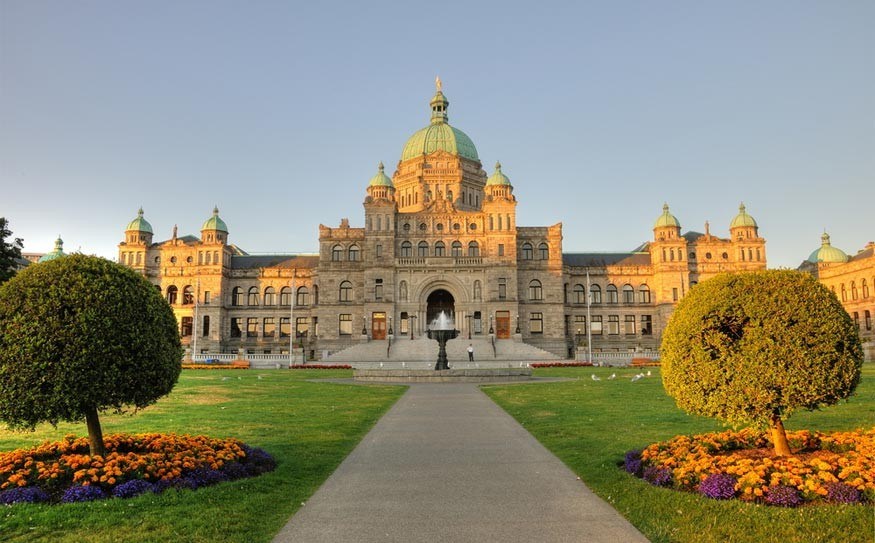"It's a miracle."
– Sam Sullivan
Dewey Defeats Truman" was the headline on the Nov. 3, 1948 Chicago Tribune, the most famous newspaper error in a once mighty industry that deals in facts. Tuesday's B.C. election results delivered the same type of blow to pollsters' credibility.
There are many years worth of fodder for political scientists, pundits, pollsters and Kevin Falcon to analyze from the Liberals' stunning majority win over the NDP. Was it a vote for Christy Clark (who lost her own riding)? A vote against Adrian Dix? A vote for the economy? A vote for LNG plants and pipelines? Maybe it was the family vote.
Whatever, it's the second provincial election in a year where the pre-election polls were dead wrong. In April of 2012 the Alberta Conservatives were re-elected with a majority after polls had predicted victory for the Wildrose Party.
The early analysis suggests young people didn't get out to vote Tuesday. Despite a strong effort by Elections BC to involve younger voters and the Generation Squeeze campaign of UBC professor Paul Kershaw to draw attention to government spending on people over 65 compared to those under 45 (he estimates it at $45,000 per person for those over 65; $12,000 per capita for those under 45), overall voter turnout was only about 48 per cent. That's down from the dismal 51 per cent voter turnout in the 2009 election.
It also comes after a proposal for electoral reform was defeated in two referendums.
It's a troubling scenario. Young people don't feel voting is worth the effort. Attempts to change the first-past-the-post system have failed. And perhaps for a variety of reasons, pollsters aren't collecting data that leads to a better understanding of the populace and meaningful conclusions.
So what are we to make of all the talk about the need for change when, given the opportunity, British Columbians decided not to change? In fact, despite the strong divide between the NDP and a "free-enterprise coalition" — the Liberals today; Social Credit previously — only three times in history have British Columbians elected an NDP government.
Christy Clark also follows the tradition of populist leaders in B.C. She will have to win a by-election to get back into the legislature but her performance Tuesday has silenced her doubters, at least for the time being.
It's been two years of populist, sometimes pandering, stuff from Clark as she prepared for Tuesday's election. Perhaps now, with a solid majority for the next four years, the premier will be more focused on policies and long-term planning for the province.
"Strong economy; secure tomorrow" and "Debt Free B.C." were the slogans plastered across the backdrop for Clark's victory speech. She has touted liquefied natural gas as the key to making those promises reality but her LNG dreams also need a dose of reality.
Clark's stance on pipelines — OK if certain conditions that benefit British Columbia are met — has also followed the populist approach. And with many suggesting it was Dix's outright rejection of the Kinder Morgan pipeline upgrade that cost him the election, the premier has shown she knows how to play an issue for election purposes. Now that the election is over she will have to make some hard decisions on the pipeline proposals and the economy.
That may well pit the tourism industry in B.C. against Clark's government. The Liberals have been strong supporters of the tourism industry, including their multi-year commitment to RMI funds. But the Resort Municipality of Whistler, the Whistler Chamber of Commerce and many others in the tourism business have sent strong messages that Enbridge's Northern Gateway pipeline proposal is a threat to tourism in B.C.
Bridging that divide is going to require a lot more planning than the shoot-from-the-hip responses that have been coming from the premier's office the last two years. Particularly if the federal government gets more involved.
This may be an area where new West Vancouver-Sea to Sky MLA Jordan Sturdy can play a role. Having lived, farmed and governed in the corridor for years he understands the tourism industry, the importance of the environment and the importance of the economy. Having Sturdy in Victoria as part of the government and bringing that sort of perspective is encouraging for the corridor.




